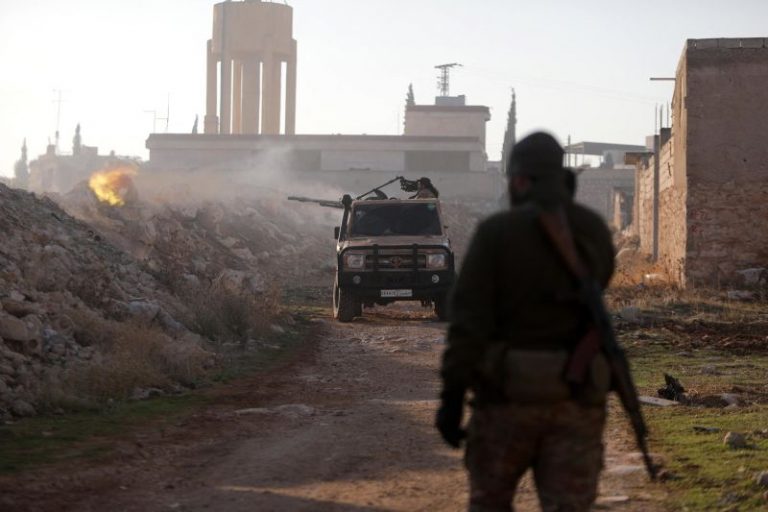Eight years ago, Syria’s civil war shifted in President Bashar Al-Assad’s favor after a Russian blitzkrieg on Aleppo helped him regain control over the country’s second biggest city.
In just over 72-hours last week, a coalition of Syrian armed rebel groups operating under the banner of Deterrence of Aggression captured the city in a surprise attack, dealing a significant blow to Assad and causing a major escalation to a largely dormant war.
The rebel coalition consists of well-established armed Islamist factions who, despite their differences, are united in fighting Assad, ISIS and Iran-backed militias.
Here are some of the groups forming the coalition.
Hayat Tahrir Al Sham
The most prominent and formidable one of those rebel groups is Hayat Tahrir Al-Sham (HTS), also known as the Organization for the Liberation of the Levant. HTS was founded by Abu Mohammad al-Jolani, a military commander who gained experience as a young fighter for al Qaeda against the United States in Iraq during the US invasion before his capture and imprisonment in Iraq.
Upon his release, he travelled to Syria to create Jabhat al-Nusra, al Qaeda’s Syrian affiliate and operated the group until a public split with al Qaeda in 2016 over ideological differences and opposition to ISIS. Jolani then formed HTS in early 2017.
Despite Jolani’s effort to distance his new group from al Qaeda and ISIS, the United States and other Western countries designated the HTS a Foreign Terrorist Organization in 2018 and placed a $10 million bounty on him.
Over the years Jolani’s influence grew despite bouts of infighting and local rivalries. Rebel groups were delivered a severe blow after the loss of Aleppo to the Syrian regime in 2016. HTS was constricted to Idlib, a city in northwestern Syria with a population of 4 million, mostly those displaced by the infighting across Syria. In a 2021 PBS interview, Jolani rejected the terrorist designation, saying his group does not pose a “threat to Western or European society.”
“(HTS) has been able to build that empire by primarily controlling most of the economic sectors in Idlib. … They are more of an independent force than many groups,” Natasha Hall, senior fellow with the Middle East Program at the Washington DC based Center for Strategic and International Studies.
HTS was primarily responsible for the offensive on Aleppo last week, Hall said.
The ‘Syrian National Army’ (SNA)
One main coalition group taking part in the offensive on Aleppo is the “Syrian National Army,” an umbrella group incorporating dozens of factions with various ideologies that receive funding and arms from Turkey.
That coalition has become a proxy group for Turkey, and includes the National Liberation Front, which includes factions like Ahrar al-Sham who’s stated aims are to “overthrow the (Assad) regime” and “establish an Islamic state governed by Sharia law.”
Experts consider Ahrar Al Sham to be a moderate Islamist group. After last week’s capture of Aleppo, the group’s deputy commander Ahmed al-Dalati gathered Muslim leaders in a mosque to deliver instructions and called on them to protect ethnic and religious minorities of the city.
“The instructions of the general command of the military operations department are strict and clear. It is forbidden to harm anyone or encroach on their property… not just Muslims, but everyone else, whether Christians or Armenians or any sect present in Aleppo. … No one is to come close to them,” he said.
Kurdish forces have been embroiled in a long-running conflict with Turkey. In its decades of tension with the Kurdish fighters, Turkey launched several military operations against the Kurdistan Workers’ Party (PKK), a militant group that Turkey deems terrorist.
Hall said Syrian groups relying on Turkey has become “problematic” as it sets its target on Kurdish controlled areas instead of the Assad regime.
“Being entirely reliant on Turkey, rather than fighting the good fight for the Syrian people they’re fighting the fight for the Turkish government. … They have set their targets on Kurdish controlled areas rather than the (Assad) regime, which is what all these groups and fighters had initially been fighting,” Hall said.


